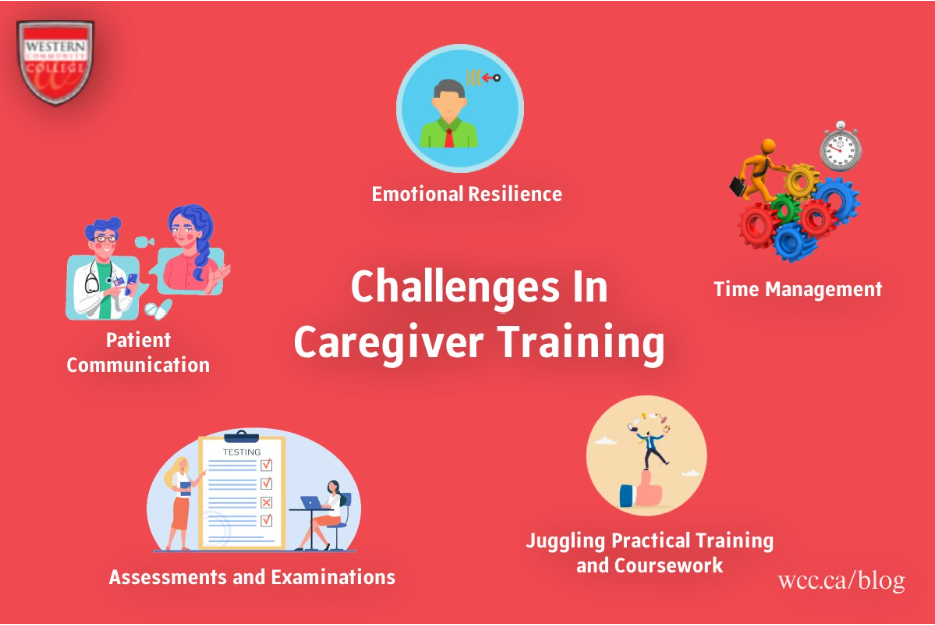Have you ever wondered whether caregivers undergo training sessions?
Well, in short, the answer is yes. Caregivers have to go through a training session, which is highly essential and prepares them to tackle various challenging situations effectively.
However, like any training, there are certain difficulties faced in caregiver courses which makes it difficult.
In this article, we have discussed in detail what is the hardest part of a caregiver course and provided several reasons for it.
So, let’s get started!
Course Content:
These are the fundamental contents of a caregiver course:
- Foundation of Caregiving:
This course provides basic knowledge about various kinds of daily care routines such as taking care of an individual’s hygiene, diet and other types of physical aid.
- Housekeeping training:
Caregivers are trained for basic housekeeping tasks such as using a dishwasher or a washing machine in order to avoid any complexities during the duty
- How to identify abnormal signs:
It is important to train caregivers about what is normal and what is not in order to instantly recognize alarming signs of aftercare recipients’ health.
Caregivers must actively look for signs such as:
-
- normal urine color
- reasonable blood pressure
- normal blood sugar
- normal temperature etc
- How to look after patients dealing with mental illness:
Caregivers must be trained for the classifications and types of mental illness that exists in order to prepare their care plans accordingly
- Transportation Safety:
Caregivers must be trained the Transportation Safety measures such as how to drive a car carefully or how to move a wheelchair in order to keep the client safe and secure during store or clinic visit
- Proficiency in medicine:
Caregivers must be trained medication management and how to monitor various vital signs often individuals health in order to tackle health related challenges strategically
Practical Skills Training:
Hands on training:
Practical skill training helps caregivers apply academic information to real-world situations. Whether it’s learning correct lifting methods or giving prescriptions, hands-on learning helps caregivers gain confidence and competence in carrying out critical duties.
Personalized feedback:
Experienced trainers frequently provide individualized feedback and assistance during the practical skills training which enables caregivers to discover areas of improvement resulting in growth and development
Safety training:
This training includes instructors providing training for following safety standards such as controlling infection and other emergency protocols required to protect the safety of both themselves and their patients
Real life scenarios:
Practical skills training prepares caregivers for real life situations they might experience in their everyday practice as a caregiver. They acquire personal experience in handling a variety of caring circumstances ranging from aiding with daily tasks to reacting to medical crises.
Team Cooperation:
Practical skills training frequently involves cooperation with interdisciplinary teams reflecting the interprofessional aspect of healthcare caregivers learning how to successfully interact with colleagues creating cooperation and collaboration in order to provide coordinated care.
Empathy and cultural sensitivity:
Practical skills training helps individuals learn how to respect, appreciate and honor the care recipients cultural origin and preference which improves the quality of care provided.

What is the Hardest Part of a Caregiver Course?
The most difficult component of a caregiving training is reconciling the emotional demands of the position with the requirement for professionalism and technical ability. Caregivers must manage emotionally charged events, such as watching pain or dealing with loss, while maintaining empathy, limits, and following protocols.
Furthermore, students may face major obstacles in acquiring practical skills, comprehending complex medical procedures, and efficiently managing time while juggling various tasks.
Now, let’s discuss the toughest components of caregiver course;
Challenges in caregiver training:
1. Emotional Resilience:
- Caregivers can get emotionally exhausted from observing suffering and offering assistance which can lead
- Caregivers can get emotionally exhausted from observing suffering and offering assistance which can lead to burnout witnessing decline or end of life care can cause sadness necessitating emotional Fortitude to offer assistance while dealing with personal loss
- Caregivers frequently create strong ties with care receivers needing a delicate balance between attachment and professional limits.
- The duties of caring along with external stresses can lead to increased stress and anxiety necessitating efficient stress management measures
- Balancing caregiving duties with personal identification can result in a dispute over identity.
2. Time Management:
- Make better use of your time by prioritizing projects based on their urgency and significance
- Create a precise calendar that includes specific times for studying, attending courses and meeting personal duties. Make sure to maintain and follow this timetable for maximum productivity
- Take advantage of small pauses and down time to study course topics or to do quick Chores
- Delegate or outsource nonessential jobs to free up time for learning and self-care
- Use calendars or planners to keep track of assignments deadlines and personal appointments
- Recognizing unforeseen circumstances may interrupt your plans so it is important to stay versatile and change your plans as needed to avoid becoming overwhelmed
- To avoid over committing oneself set realistic objectives and expectations. Break down major chores into smaller more achievable steps to prevent feeling overwhelmed.
3. Juggling Practical Training and Coursework:
- It is important to create a flexible timetable that includes both practical training and academic courses.
- it is recommended to allocate time for each task to ensure that no part is overlooked
- Determine the most important activities and dates for both practical training and academic learning by prioritizing things according to their urgency and significance.
- Reflect on real world experiences throughout course discussions and exercises to improve your comprehension and application of academic topics.
- Maintain communication with teachers and supervisors from both your practical training program and academic studies.
4. Assessments and Examinations:
- Engage in interesting and engaging discussions to demonstrate your grasp of caring principles
- Practical exams allow you to demonstrate your skills in caregiving responsibilities
- Prepare for written examinations that cover various theories and principles required for caregiving
- Analyzing provide solutions to hypothetical caring problems to evaluate critical thinking abilities
- Document your personal experience and insights from the course to illustrate self-reflection and progress
- Complete thorough projects that combine academic knowledge and practical abilities acquired during the course
5. Patient Communication:
- Caregivers may struggle to keep emotional boundaries, especially when patients tell personal tales or display anguish.
- While expressing empathy, caregivers must adhere to professional norms and prevent over-involvement or emotional exhaustion.
- While expressing empathy, caregivers must adhere to professional norms and prevent over-involvement or emotional exhaustion.
- Misinterpretations or misunderstandings may occur, stressing the significance of clear, succinct communication and attentive listening in clarifying information.
Conclusion:
In conclusion, a caregiver program’s most challenging parts include learning how to tackle emotionally draining situations, balancing empathy and professionalism, and understanding various medical procedures while also managing time efficiency.
Once the caregiver overcomes these barriers and learns the required, caregiving eventually becomes easier.
I hope this article answered your question, “what is the hardest part of a caregiver course?”
Frequently Asked Questions:
What topics are typically covered in a caregiver course?
Topics that are typically covered in a caregiver course include; foundation of caregiving, housekeeping, how to identify abnormal signs, how to look after patients dealing with mental illness, Transportation Safety and Proficiency in medicine.
How can caregivers manage their emotional well-being during training?
Caregivers manage their emotional well-being during training by frequently practicing self-care, taking short breaks in between to avoid burnout and by finding support from peers.
What strategies help in balancing time between coursework and practical training?
Strategies include making a flexible plan, prioritizing activities, using time management tools, and getting assistance when required.
How are caregivers assessed in their training programs?
Caregivers are evaluated via conversations, practical demonstrations, written exams, case studies, peer assessments, and ongoing input from instructors.
What communication skills are essential for caregivers?
Communication skills such as active listening, oral communication, written communication, clarity and empathy are highly crucial skills for caregivers.
How do caregiver courses prepare individuals for sensitive situations?
Caregiver courses prepare individuals for sensitive situations by teaching the enrolled students how to respond empathetically, retain professionalism and use self-care skills while dealing with such situations.



